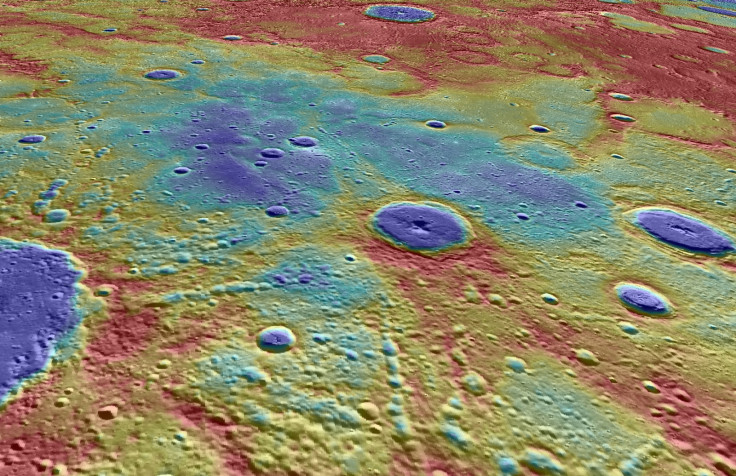Mercury: Magnetic field billions of years old possibly predates that on Earth

Magnetic fields in ancient rocks on Mercury have led scientists to conclude the rocky planet had a magnetic field as strong as the Earth's billions of years ago.
The planet possessed a magnetic field as long ago as 3.8 billion years, making it the oldest in the solar system. The only other planet with a magnetic field is Earth, where most ancient rocks have pointed to magnetic origins of 3.45 billion years.
The discovery implies Mercury's core was at least partially liquid once.
"This was a surprise at first, because Mercury is very small, so you would expect it to cool quickly after it formed and be completely solid. Scientists later realised if there was a little bit of nonmetallic stuff in Mercury's core, that'd lower its freezing point and make it hard to be completely solid," the study's lead author Catherine Johnson of the University of British Columbia in Vancouver told Space.com.
The discovery follows data from a series of low altitude orbital passes undertaken by the Messenger probe before it crashed into the planet on 30 April.
The researchers analysed magnetic data collected by the Messenger in 2014 and 2015, when the spacecraft flew as close as 150kms to the planet's surface.
Magnetized rocks were detected in a part of Mercury's crust that is believed to be ancient owing to the presence of many craters from cosmic impacts.
Based on the age and amount of the magnetized rocks, as well as the fields, the investigators concluded that Mercury's magnetic field has persisted for 3.8 billion years.
"The strength of Mercury's magnetic field may have ranged anywhere from its strength today to something about 100 times stronger, comparable to the strength of Earth's magnetic field at Earth's surface today," Johnson said.
Finding the remnant magnetisation was a tough job as 95 to 99% of the magnetic signatures detected by Messenger were created by other sources including the present magnetic field of the planet.
Mercury's present-day field is only about 1% that of Earth's own surface field.
The scientists detailed their findings online 7 May in the journal Science.
Researchers from the University of Rochester in New York and the University of KwaZulu-Natal in South Africa placed the Earth's magnetic field at a 3.45 billion years based on ancient rocks dating to the period.
© Copyright IBTimes 2025. All rights reserved.





















